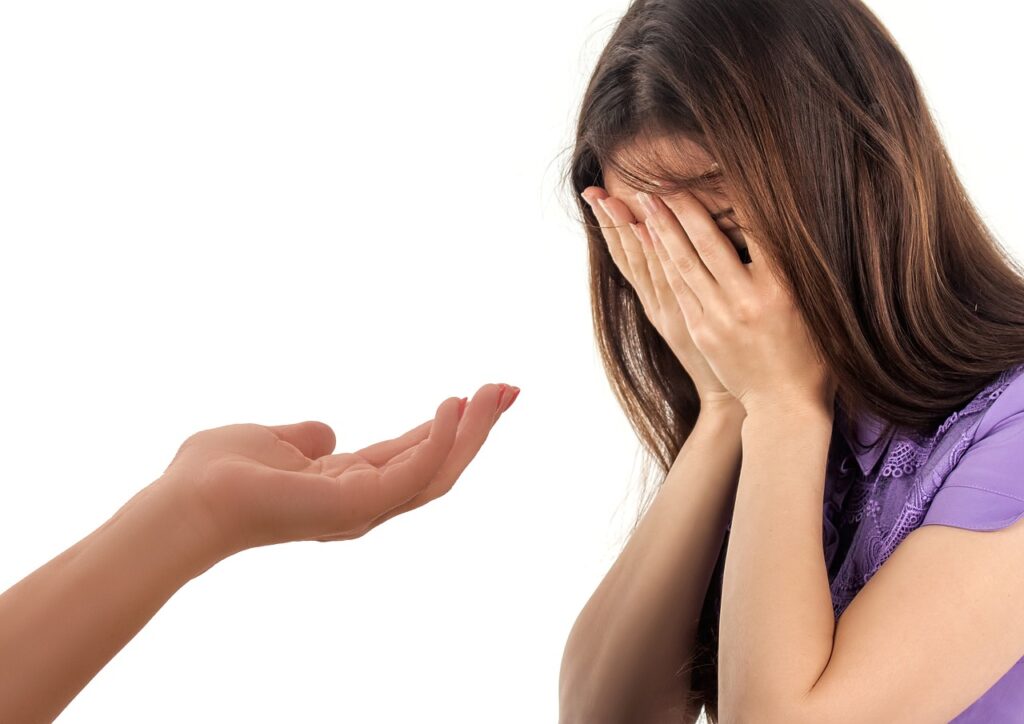Depression is one of the most misunderstood and under-discussed mental health challenges of our time. Despite affecting millions of people globally, the stigma surrounding it often leaves sufferers feeling isolated, silenced, and misunderstood. Breaking this silence is crucial to fostering understanding, compassion, and access to the help that so many need.
What is Depression?
Depression is more than just feeling sad or down. It’s a complex mental health condition characterized by persistent feelings of sadness, hopelessness, and a loss of interest in activities once enjoyed. It can also manifest in physical symptoms like fatigue, changes in appetite, and difficulty sleeping or concentrating. For some, it’s a temporary episode; for others, it’s a chronic condition that impacts every facet of their life.

The Hidden Nature of Depression
One of the most challenging aspects of depression is how invisible it can be. Unlike a broken bone or a visible illness, depression often hides behind a mask of normalcy. Many people with sadness excel at maintaining an outward appearance of stability, going about their daily routines while quietly battling overwhelming internal struggles.
This hidden nature makes it difficult for others to recognize when someone is suffering. Phrases like “But you don’t look depressed” or “You seemed fine yesterday” inadvertently reinforce the isolation that depression can bring.

Breaking the Stigma
The stigma surrounding mental health issues remains a significant barrier to seeking help. Many people feel ashamed to admit they’re struggling, fearing judgment or rejection from friends, family, or colleagues.
Breaking this stigma starts with education and open conversations. It’s essential to understand that sadness is not a sign of weakness or a character flaw—it’s a medical condition that requires attention and care, just like diabetes or heart disease.

Steps Toward Understanding and Support
- Listen Without Judgment
If someone opens up about their depression, listen with empathy. Avoid offering unsolicited advice or minimizing their feelings with phrases like “Just think positive!” or “Snap out of it!” - Educate Yourself
Understanding depression helps dispel myths and stereotypes. Learn about the symptoms, causes, and treatments so you can provide informed support. - Encourage Professional Help
Therapy, medication, and support groups can be life-changing for those with depression. Gently encourage loved ones to seek professional help if they haven’t already. - Offer Practical Support
Depression can make even simple tasks feel insurmountable. Offering to help with daily chores, attending appointments, or simply being present can make a big difference. - Normalize Conversations About Mental Health
Share your own experiences, if comfortable, or advocate for mental health awareness in your community. The more openly we discuss depression, the more we reduce its stigma.

Finding Hope and Healing
While depression can feel insurmountable, it’s important to remember that help is available and recovery is possible. Whether through therapy, medication, self-care strategies, or the support of loved ones, many people find ways to manage and even overcome their depression.
Conclusion
Breaking the silence around depression isn’t just about raising awareness—it’s about creating a world where people feel safe to share their struggles without fear of judgment. By fostering understanding and compassion, we can build a society where mental health is treated with the same importance as physical health, and no one has to suffer in silence.
What is depression, and how is it different from feeling sad?
Depression is a mental health condition characterized by persistent feelings of sadness, hopelessness, and a lack of interest in activities. Unlike temporary sadness, depression lasts for weeks or months and often affects daily functioning. It’s not just an emotional state but a medical condition that can involve physical symptoms.
Why is depression often called a “hidden struggle”?
Depression is considered a hidden struggle because it doesn’t always have visible signs. Many people with sadness put on a brave face, appearing “fine” to the outside world, while internally battling overwhelming emotions and thoughts. This invisibility makes it difficult for others to recognize their pain.
What causes sadness?
Depression can result from a combination of factors, including:
1. Genetic predisposition
2. Chemical imbalances in the brain
3. Traumatic life events (e.g., loss, abuse)
4. Chronic stress or medical conditions
5. Hormonal changes (e.g., postpartum, menopause)
Often, it’s a mix of biological, psychological, and social factors.
How can I tell if someone I know is experiencing sadness?
Signs of depression can vary but may include:
1. Persistent sadness or low mood
2. Loss of interest in hobbies or activities
3. Fatigue or lack of energy
4. Changes in appetite or sleep patterns
5. Difficulty concentrating
6. Withdrawal from friends and family
7. Expressions of hopelessness or worthlessness
8. Talking about self-harm or suicidal thoughts
If you notice these signs, approach the person with care and empathy.
Why don’t people with depression seek help?
Common reasons include:
1. Stigma and fear of judgment
2. Lack of understanding about their condition
3. Belief that they should “tough it out”
4. Financial or logistical barriers to accessing treatment
5. Feeling too overwhelmed to seek help
Reducing stigma and offering support can make it easier for individuals to reach out.
What can I do to support someone with depression?
1. Listen without judgment.
2. Encourage professional help, such as therapy or counseling.
3. Offer practical support, like helping with errands or attending appointments.
4. Stay patient and avoid minimizing their feelings.
5. Educate yourself about depression to better understand their experience.
What treatments are available for depression?
Common treatments include:
1. Therapy: Cognitive-behavioral therapy (CBT), interpersonal therapy, or other approaches.
2. Medication: Antidepressants may help balance brain chemistry.
3. Lifestyle Changes: Regular exercise, a healthy diet, and good sleep hygiene.
4. Support Groups: Connecting with others who share similar experiences.
5. Holistic Approaches: Mindfulness, meditation, or yoga.
The right treatment plan varies for each individual.
How does stigma affect people with depression?
Stigma can make individuals feel ashamed or reluctant to seek help. It perpetuates misconceptions, such as viewing sadness as a weakness or personal failing. Breaking the stigma through education and open conversations is essential to fostering a supportive environment.
How can workplaces or communities help break the silence about depression?
1. Promote mental health awareness through events and training.
2. Offer resources like Employee Assistance Programs (EAPs).
3. Encourage open dialogue about mental health without fear of discrimination.
4. Create policies that prioritize work-life balance and reduce stress.
Is recovery from sadness possible?
Yes, recovery is possible. While sadness can be challenging, many people successfully manage their symptoms through treatment, support, and self-care. It’s important to remind those struggling that seeking help is a sign of strength, not weakness.
How can I start a conversation about depression?
1. Choose a private, comfortable setting.
2. Use open-ended questions like, “How have you been feeling lately?”
3. Express concern with empathy: “I’ve noticed you seem down. Is there anything you’d like to talk about?”
4. Be patient and listen without interrupting or judging.
What should I do if someone talks about self-harm or suicide?
Take it seriously. Encourage them to seek immediate professional help. In emergencies, contact crisis hotlines or emergency services. Stay with them until help arrives, and ensure they feel supported and safe.



qq0agv
Hola! I’ve been following your weblog for a while now and finally got the bravery to go ahead and give you a shout out from New Caney Tx! Just wanted to say keep up the great work!